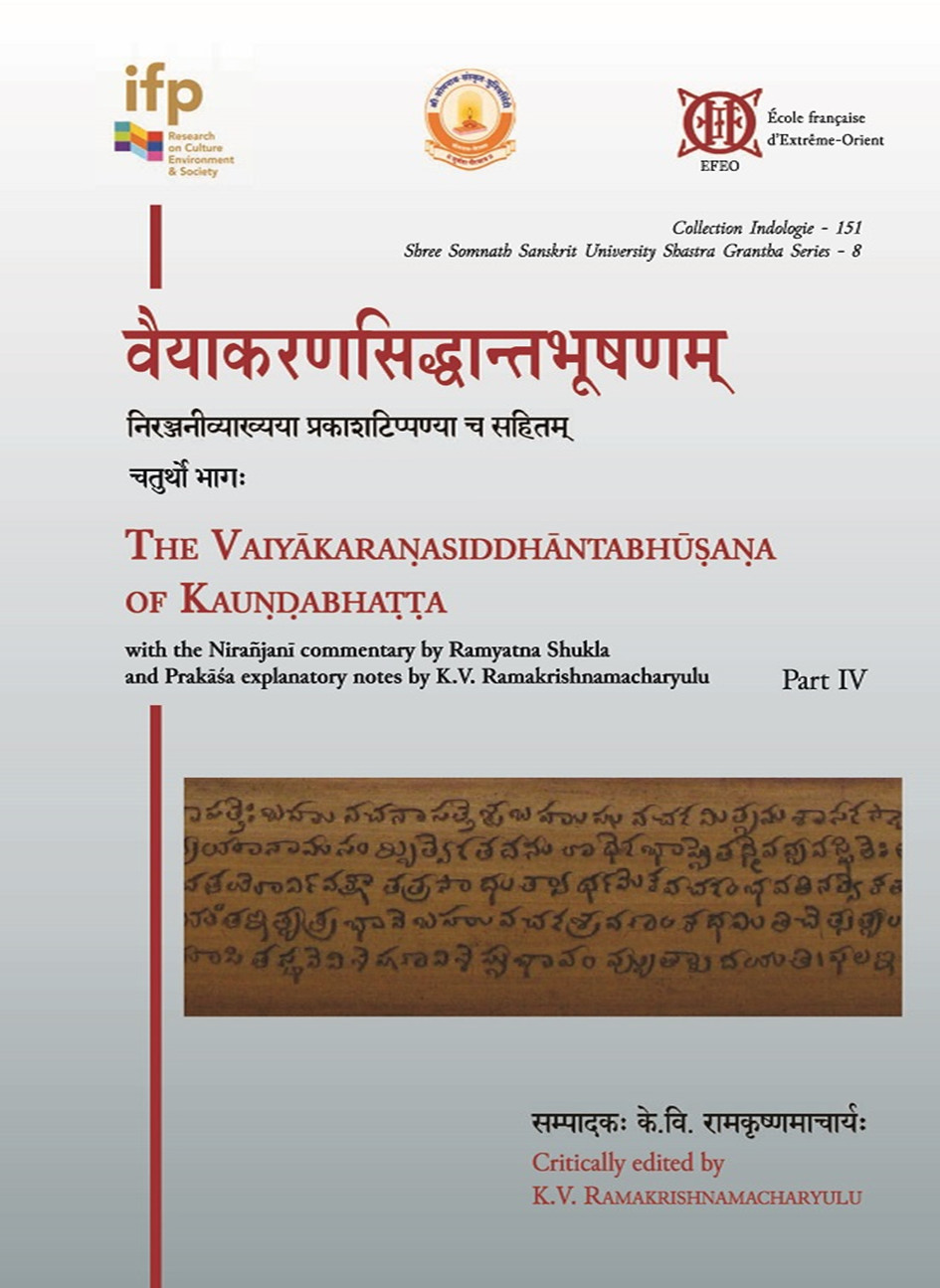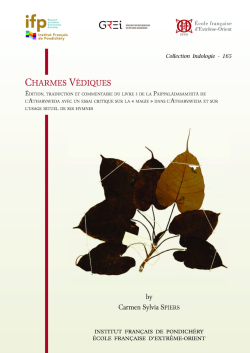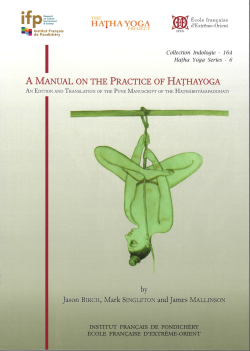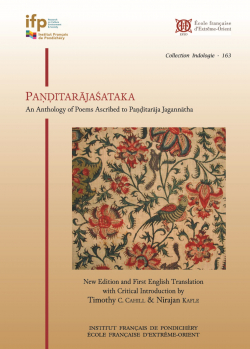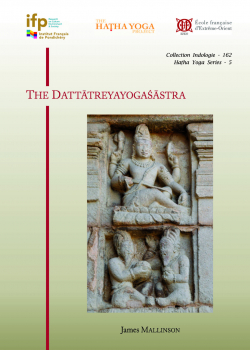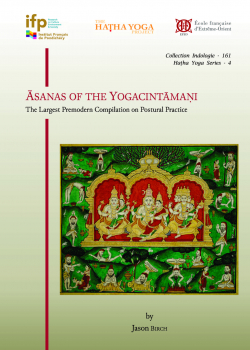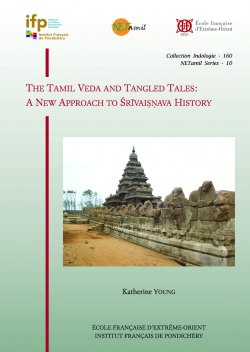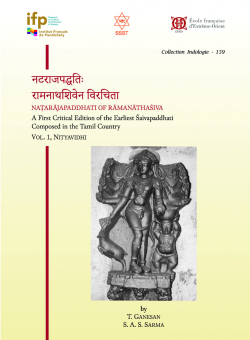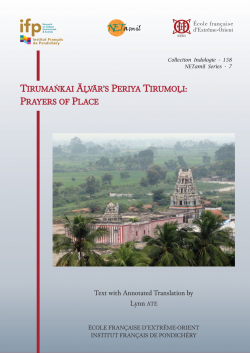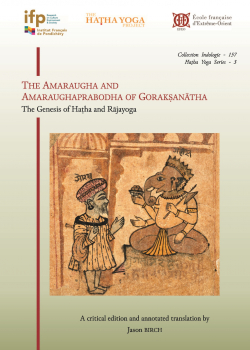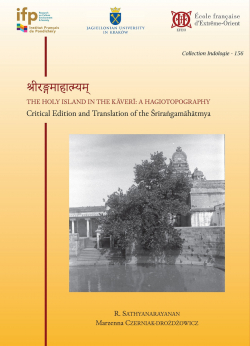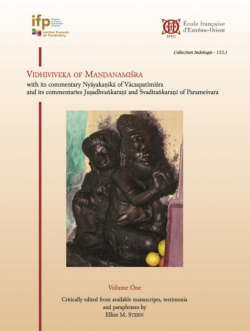The catalog of EFEO Publications includes works on a wide range of disciplines in the humanities and social sciences (archaeology, history, anthropology, literature, philology, etc.), centered on Asia, from India to Japan.
These publications address both specialists, and a wider public interested in Asian civilizations and societies.
Vaiyākaraṇasiddhāntabhūṣaṇam
The Vaiyākaraṇasiddhāntabhūṣaṇa of Kauṇḍabhaṭṭa with the Nirañjanī commentary by Ramyatna Shukla and Prakāśa explanatory notes by K.V. Ramakrish-namacharyulu. Part IV (from Śaktinirṇaya to Sphoṭavāda).
Collection : Collection Indologie
Collection's number: 151
Edition: EFEO, Institut français de Pondichéry (IFP)
Publication date: 2022
Status : Available
64,00 €
ISBN-13 : 9782855392585
ISSN : 0073-8352
Width : 17.5 cm
Height : 24.5 cm
Weight : 1.69 kg
Number of pages : 900
Distributor : EFEO Diffusion, EFEO Pondichéry Contact : shanti@efeo-pondicherry.org
Geography : India
Language : Sanskrit
Place : Pondichéry
Support : Papier
Description :
XXXV+XXXV+829 p., Sankrit, hardcover
Collection Indologie n˚151
Shree Somnath Sanskrit University Shastra Grantha series n˚ 8
Abstract
The Vaiyākaraṇasiddhāntabhūṣaṇa, also known as the Vaiyākaraṇabhūṣaṇa, is a commentary on the great 17th-century grammarian Bhaṭṭoji Dīkṣita’s Vaiyākaraṇamatonmajjana, written by Bhaṭṭọji’s nephew Kauṇḍabhaṭṭa. It is one of the most important texts of the late Pāṇinian grammatical tradition on questions of semantics. The main intention of Kauṇḍabhaṭṭa’s commentary is to refute objections raised by proponents of the two rival systems of Logic (Nyāya) and Exegesis (Mīmāṃsā) on various aspects of semantics, and to establish the Grammarians’ views on these subjects. The Vaiyākaraṇasiddhāntabhūṣaṇasāra, an abridged version of the Vaiyākaraṇabhūṣaṇa by the same author, is a popular work that was commented upon more than ten times. On the other hand, nobody so far has attempted to write a commentary on the Vaiyākaraṇabhūṣaṇa itself. The present work contains the Vaiyākaraṇabhūṣaṇa along with a commentary called Nirañjanī by Pandit Ramyatna Shukla and explanatory notes (Prakāśa) by the editor. This fourth and last part of the work discusses specific issues of semantics: the expressive power (śakti) of words, the meaning of negation, particles, abstract suffixes, etc. It also contains an extensive discussion of the philosophical concept of sphoṭa, one of the most fundamental notions introduced by the Pāṇinian tradition to account for the understanding of expressive units as undivided wholes.
Notes
You may also order this title from our centre in Pondicherry at the following address:
library@efeo-pondicherry.org
Or, from the French Institute in Pondicherry at the following address:
library@ifpindia.org
Orders for delivery to India have to be placed with our centre in Pondicherry or the French Institute in Pondicherry.
Related books
Collection Indologie
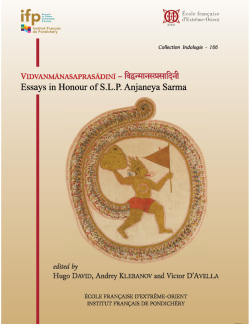
Vidvanmānasaprasādinī
S.A.S. SARMA, Dominic GOODALL, Harunaga ISAACSON, Suganya ANANDAKICHENIN, Hugo DAVID, Kei KATAOKA, Victor D’AVELLA, Giovanni CIOTTI, Andrey KLEBANOV, Émilie AUSSANT, Maria Piera CANDOTTI, Tiziana PONTILLO, Sibylle KOCH, Vincenzo VERGIANI, Timothy C. CAHILL, Somedeva VASUDEVA, Luther OBROCK, M. VINOTH, Maṇi DRĀVIḌA, Akane SAITO, Alex WATSON, Daniele CUNEO, Yūto KAWAMURA
60,00 €
2026
• Available
